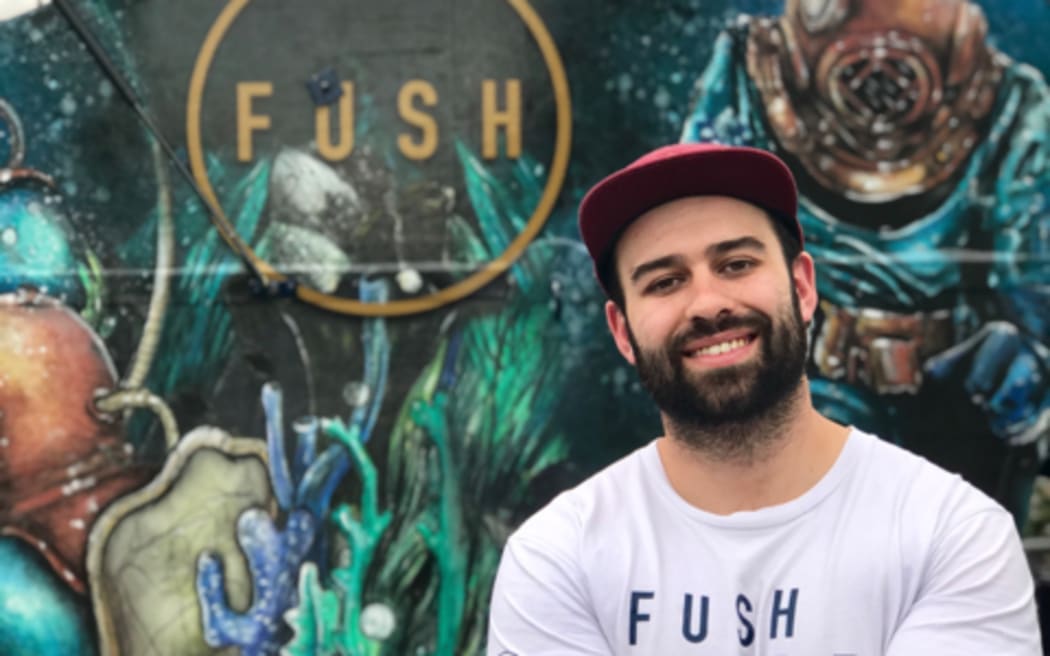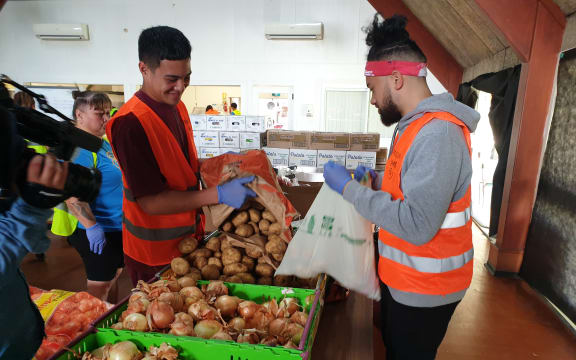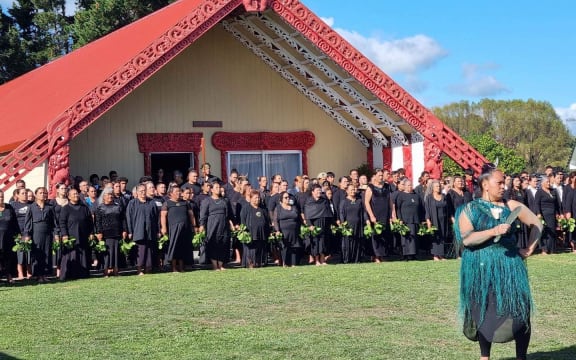Anton Matthews is the director of Hustle Group, a company operating a bunch of restaurants and catering companies in Ōtautahi Christchurch.
He's also a big advocate for people learning te reo Māori, also running online course Normalising Te Reo Māori.
In the next in a weekly series, he shares a favourite whakataukī, or traditional Māori aphorism, with Emile Donovan.

Anton Matthews Photo: Supplied / Fush
Ko te amorangi ki mua, ko te hāpai ō ki muri
The leader at the front and the workers behind the scenes
This simple whakataukī, or Māori proverb, is a multi-layered favourite of Matthews.
While he was fortunate to grow up immersed in te ao Māori, including being educated at kohanga reo and kura kaupapa, Matthews tells Nights anyone exposed to a lot of te reo Māori quickly learns that it’s a language rich in metaphor.
“There’s the literal meaning of whatever has been said, but it often takes a couple of years (sometimes it never actually dawns on us), but there is a hidden meaning there as well.
“That’s what I love about whakataukī is that yep, there's that kind of surface layer – literally, what is the person saying? But what's the hidden meaning? What are they really trying to explain or what sort of message or idea are they trying to convey when they use the whakataukī? That's the beauty of language, not just te reo Māori, but any language has those kinds of beautiful nuances, I think.”
Matthews says he loves all sorts of different whakataukī for different reasons and occasions, but his favourite is particularly appropriate to his work in the hospitality sector.
Ko te amorangi ki mua, ko te hāpai ō ki muri has two parts to it, Matthews says.

Volunteers sort food at Papakura Marae. Photo: RNZ / Sarah Robson
Amorangi is a term that refers to recognised iwi leaders, the ones who are front and centre when leading a pōwhiri, or welcome, onto the marae.
“These are the familiar faces that everyone kind of knows… these people are highly respected. They have a lot of mana. We look to them when we need guidance.”
Te hāpai ō referred to in the second part of the whakataukī is the complete opposite, Matthews says.
“These are the people that you don't quite see; they're not familiar faces, they're not well known, they are the humble folk, that are often behind the scenes doing all the grunt work, doing all the heavy lifting.
“Hāpai ō literally means to carry food, so these are the food carriers. And in so while the amorangi are at the front, the humble food carriers are at the back doing what they do.”
Matthews says this whakataukī neatly demonstrates the duality and balance fundamental to te ao Māori.
“Hāpai ō and amorangi are like two sides of the same coin; they are equal, but they are opposites.”
This whakataukī is often used as in the context of a pōwhiri, which includes formalities followed by hospitality.
“In order for those two things to work together harmoniously, the front amorangi and the back hāpai ō actually need to be in communication constantly. They actually need each other. The amorangi can't actually perform their duties out the front, the formalities, without the food carriers out the back in the kitchen, peeling the spokes and getting all the kai ready for the visitors.”
Matthews says the whakataukī is a reminder not to conflate being “at the front” with increased importance.
“We're not all cut out to be out the front on show leading by example. Some of us actually do our best work behind the scenes in the shadows, getting our hands dirty, you know, peeling spuds and preparing kai. And what I love about it is that they are both worthy of mana. They're both just as important as each other.

A pōwhiri at Omāhu Marae, Hawke's Bay. Photo: Kiingitanga/Facebook
“This is a really important idea for our staff to really grab on to. From a Western point of view, sometimes we look down in retail, sometimes we look down on hospitality staff, but from a Māori point of view the skills that you're learning here working in this restaurant, whether you're in the kitchen, while you're at the front of the house serving people, these are exactly the skills that are required on the marae, and these are exactly the skills that are required for your iwi to be able to earn mana by serving manuhiri, by serving guests."
This whakataukī shows that “everyone has a seat on the bus,” Matthews says.
“It's this kind of this big jigsaw puzzle. And unless you've got all the pieces, then it's not really complete. And I think that that's a wonderful idea, that everyone's got their own place. No one's more important than the other. Everyone is just as important as each other and that's what I love about this whakataukī.”

